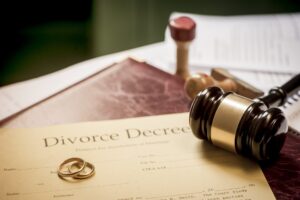In Mortgage Grader Inc. v. Ward & Olivo 214 N.J. Super Lexis 153 (decided November 14, 2014) the Appellate Division determined that a partner who was not involved in underlying legal malpractice did not lose his liability protection as a partner in an LLP due to the firm’s failure to carry professional liability insurance. This case impacts both coverage for professional liability claims, as well as law firm partners’ protection from personal liability under the LLP statute.
In this case, two lawyers had been in practice for nearly twenty years in the form of an LLP. The lawyers ceased practicing as a firm on June 30, 2011, but continued to collect outstanding legal fees in order to wind up the firm’s practice. The firm’s “claims made” professional liability policy expired on August 8, 2011 and the firm did not purchase a tail policy to cover claims asserted after the “claims made” coverage period expired.
The plaintiff-Mortgage Grader, sued the firm and both partners individually claiming negligence by one of the partners, Olivo, and vicarious liability against the other partner, Ward, who had no involvement handling the underlying lawsuit or litigation on behalf of Mortgage Grader. The malpractice claim asserted that the lawyers failed to properly pursue a patent claim on behalf of Mortgage Grader.
The Affidavit of Merit prepared in connection with the lawsuit asserted malpractice against Olivo and the firm, but not against Ward. The Affidavit also opined that “because Olivo was part of an apparent partnership, the opinion extended from Ward to Olivo.”
On Ward’s motion for summary judgment to dismiss the claim against him for plaintiff’s failure to comply with the Affidavit of Merit Statute, the trial court determined that the affidavit substantially complied, because the law firm continued to be “active” since it continued to collect fees after the firm members stopped practicing law. The trial court then reasoned that because the law firm continued to operate as an LLP without statutorily-required insurance, Ward was no longer protected from personal liability under the LLP statute, and therefore denied Ward’s summary judgment application.
On appeal, the panel found nothing in the Uniform Partnership Act, the Court Rules, or case law to support the concept that an LLP reverts to a general partnership due to not being properly insured. The Appellate Division therefore reversed the trial court’s opinion and dismissed Ward from the litigation.
Lessons Learned
Where attorneys who practice law as an LLP fail to carry required Professional Liability Insurance as required by the New Jersey Court Rules, the LLP does not revert to a general partnership making all partners personally liable for the negligence of others. However, the Court raised two important ethics issues. First, the Court queried whether a law firm which is “winding up” its practice is actually “practicing law” to begin with. Second, the Court queried whether Ward & Olivo’s failure to purchase a “tail” insurance policy for the LLP warranted the attention of the Office of Attorney Ethics.
The lesson here is that law firms which cease to practice law would be wise to purchase a “tail” policy while winding up the practice in order to obtain protection from both professional liability claims as well as from possible ethics violations.
For information, contact Brian D. Barr, Esq., bbarr@cooperlevenson.com





